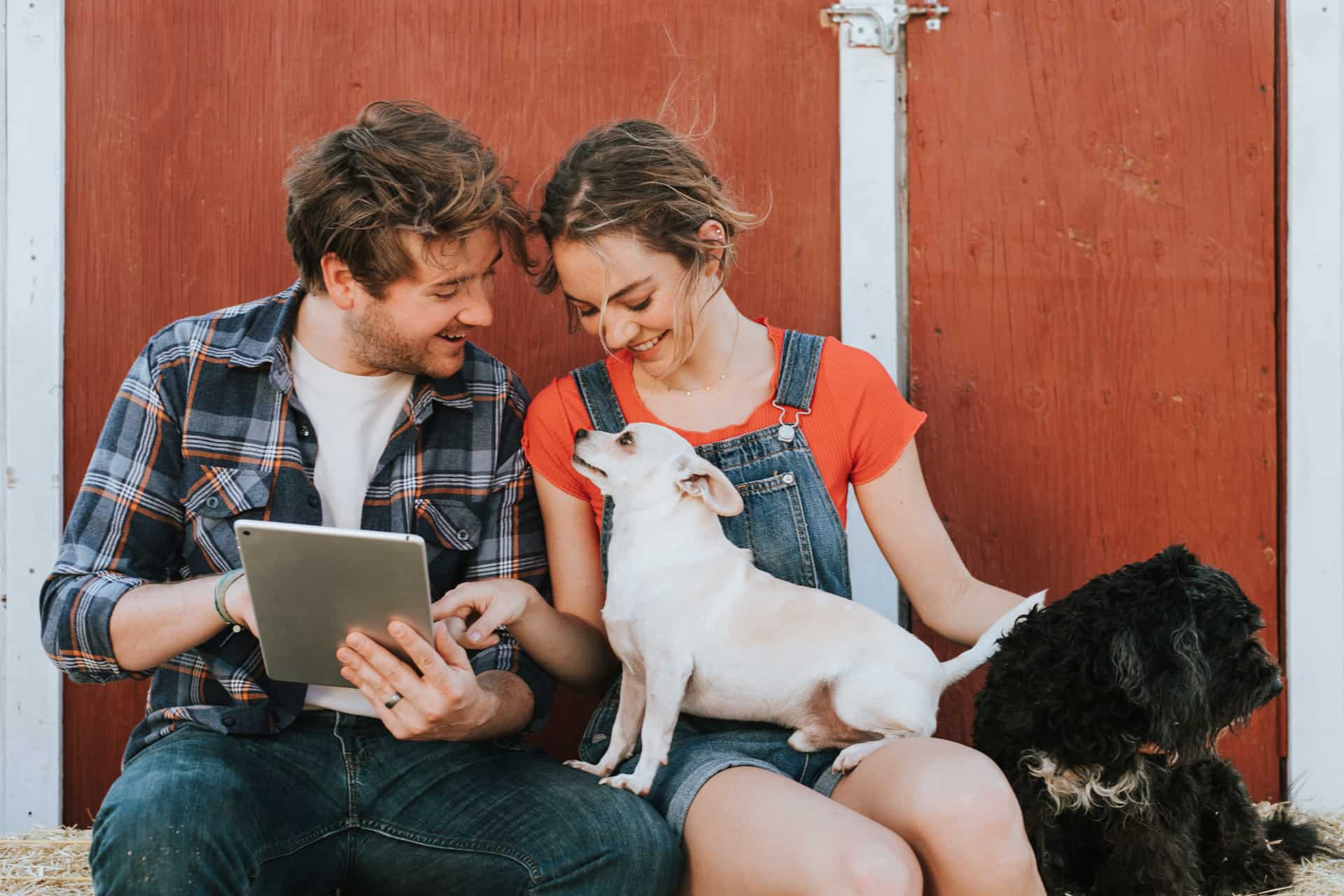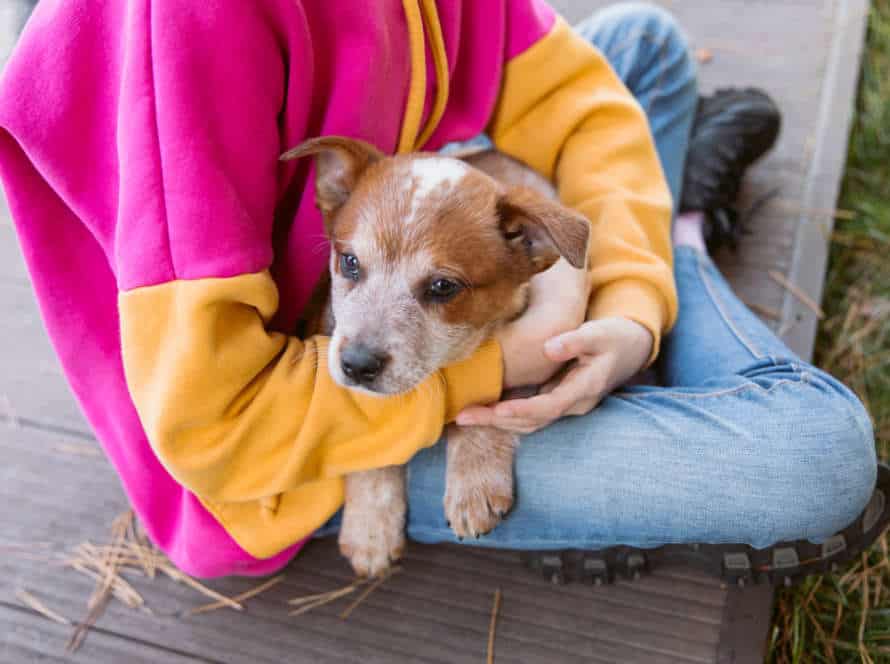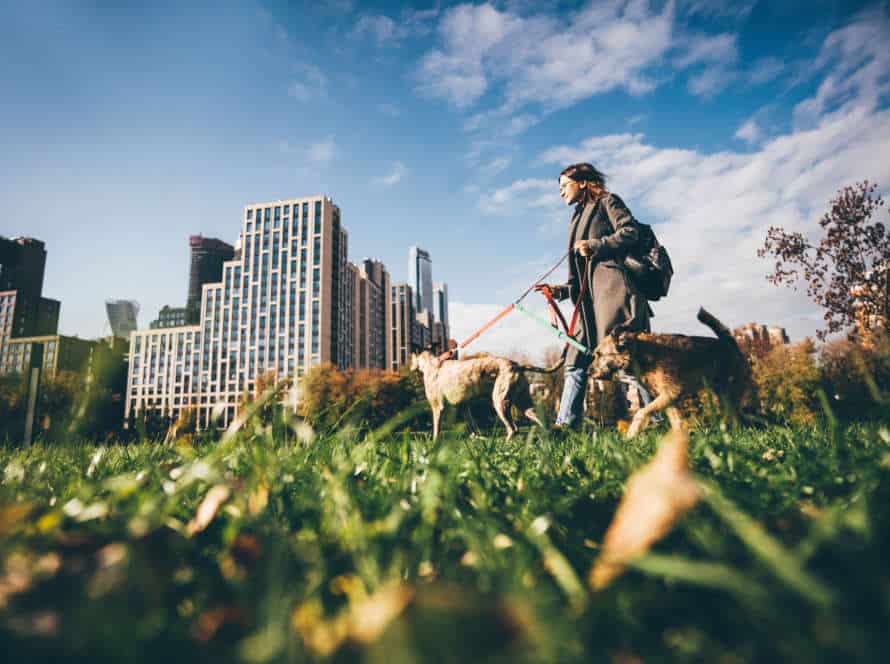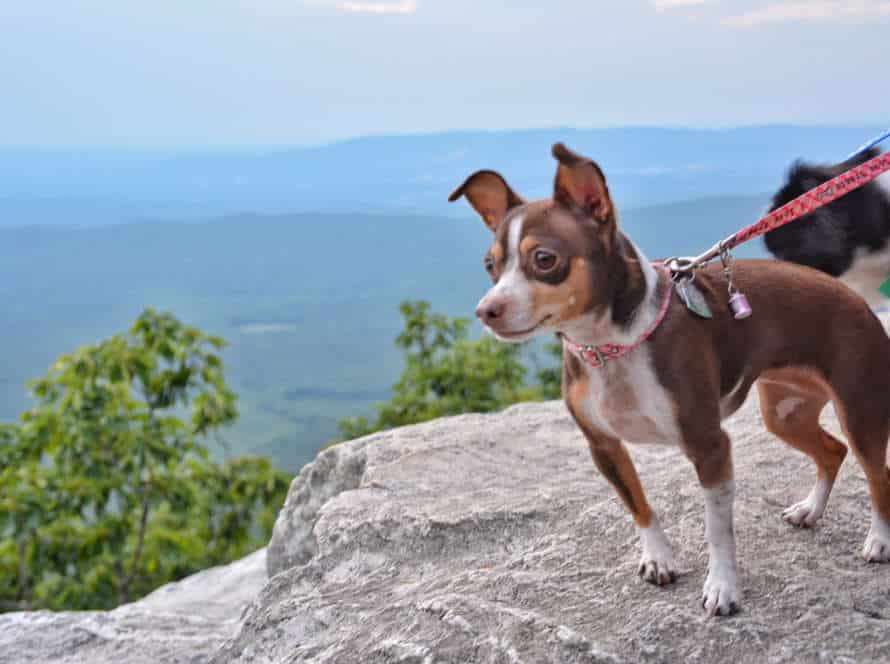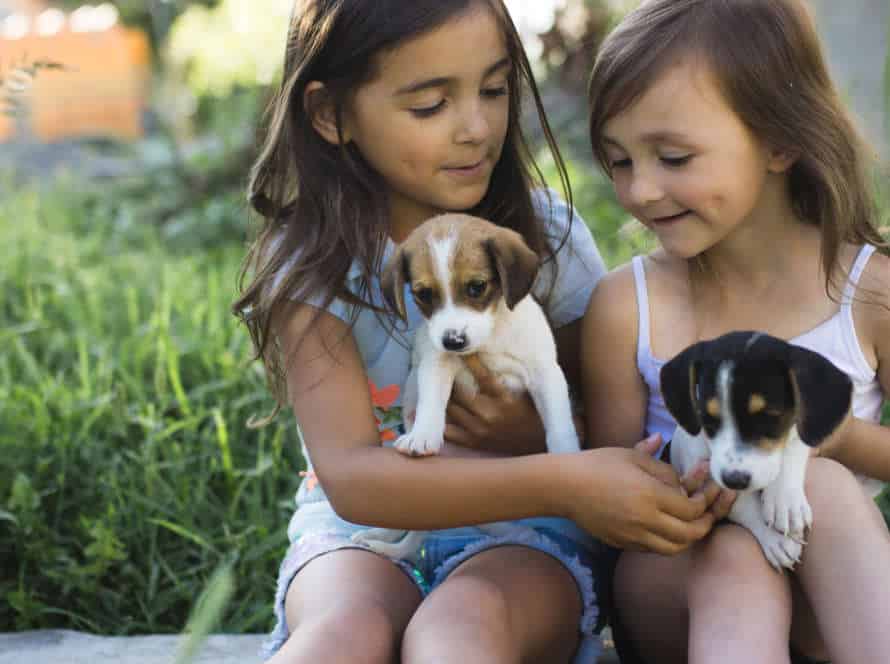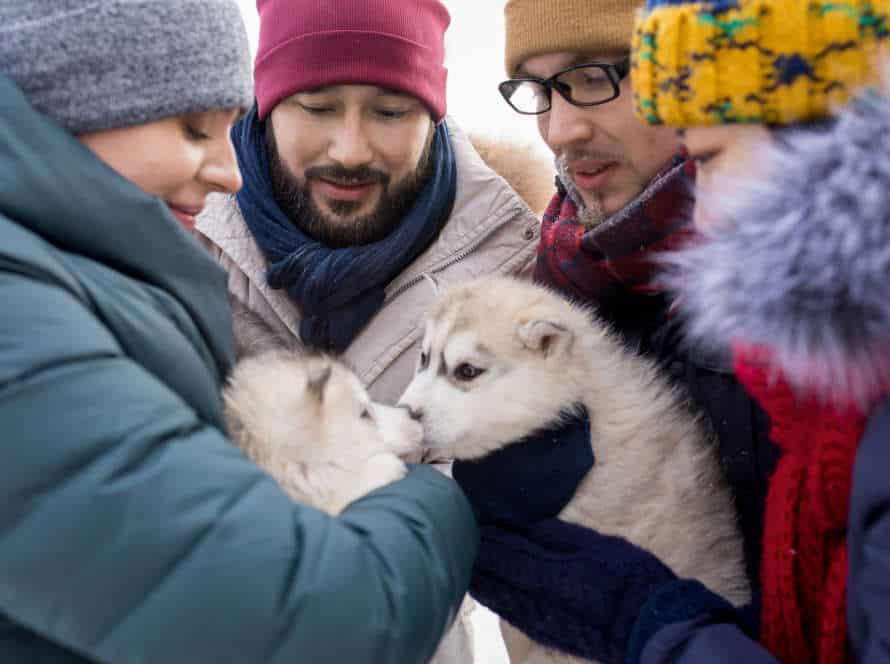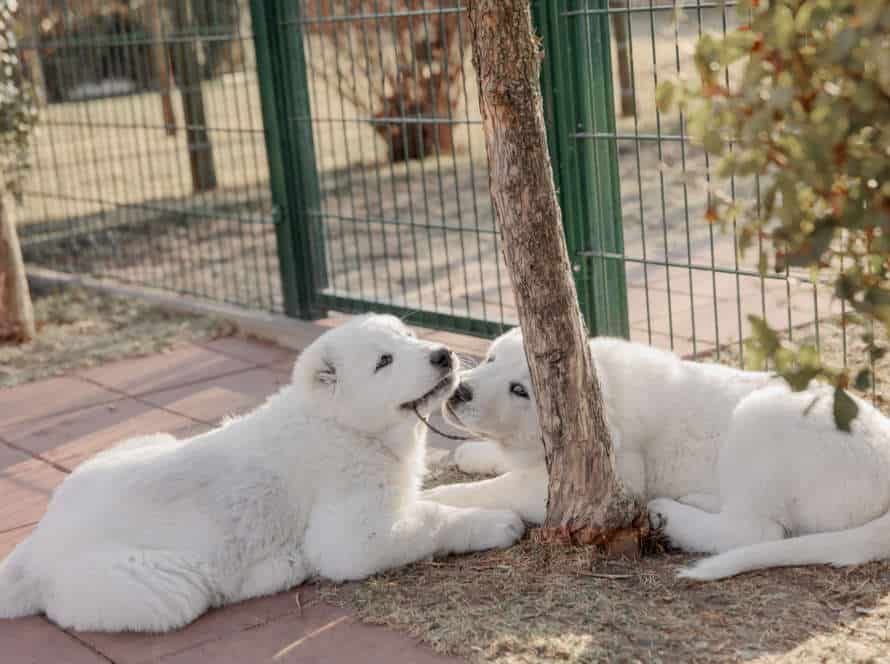Preparing for Socialization
Socialization is a must for adult dogs who are adopted or rescued. It helps them feel comfy around new people and other animals. Prep your rescue dog for socializing as the first step to help them adjust to their new environment.
Here are some things to think about when prepping your rescue pup for socialization:
Understanding your rescue dog’s behavior and history
Knowing your rescue dog’s story and behavior is important for socializing them with others. Most have gone through abuse, making them scared, anxious or aggressive. Knowing their triggers helps you plan the journey. Here are some tips:
- Start socializing early.
- Introduce them to different people, places and situations slowly.
- Use treats, toys and praises to encourage good behavior.
- Never force them to interact with anything they’re scared of.
- Create a safe space at home to retreat to when stressed.
- Seek professional help if unsure.
- Patience, persistence and rewards are keys. With time and training, they will learn to trust and feel safe.
Creating a safe and comfortable living space
Creating a secure living space is key when getting ready to socialize your adult rescue dog. A good living area will ensure your pup feels safe and sound. First, seal up the boundaries of your home. Then, get rid of any sharp objects, small choking hazards, and poisonous plants. Give your pup a cozy place to relax and make sure they can easily access food and water. With this foundation of safety and security, your pup will be ready to work on socialization. They’ll be able to cope better with socialization experiences and do well in more places.
Building trust and a bond with your rescue dog
Creating trust and a connection with a rescue pooch is essential for their mental and physical health. Preparing for socialization and forming a bond is a must when building trust.
Start by constructing a routine for your pup. Dogs adore consistency, so make a plan including mealtimes, playtime, and training.
Use positive reinforcement strategies such as giving snacks, verbal compliments, and petting to urge good behavior and interactions with you.
Understand your dog’s likes and dislikes, like their favorite toys, types of treats, and activities. This will help you understand their personality and preferences better.
Introduce your dog slowly to new experiences, people, and animals in a controlled environment. Step-by-step socialization will be less daunting for your pup and help build their assurance.
Pro tip: Remember that building trust and a bond with a rescue dog takes time and patience. Be consistent and kind, and the bond will grow with time.
Introducing Your Rescue Dog to New People
Introducing your rescue dog to new people? Don’t fret! It can be challenging, though the rewards are worth it. Socializing your pup helps with trust, comfort in public, and forming connections. Let us guide you with the best techniques. Socialize your adult rescue dog, and help them make connections with other people!
Introducing family members and close friends
Introducing your rescue pup to unfamiliar people can be a nerve-wracking experience for the two of you. But there are plenty of ways to help your adult rescue dog to get acquainted with family and friends.
- Start slow: Let your pup meet one person in a peaceful atmosphere.
- Positive reinforcement: Praise them when they are good around new people.
- Patience: Give your pup time to get used to the new person.
- Set boundaries: Educate your family/friends on how to interact with your pup.
With some time, patience, and rewards, your rescue pup will be a social butterfly in no time!
Pro tip: If your pup acts aggressively or scared around new people, consult a dog trainer or behaviorist.
Introducing strangers
Introducing your rescue pup to new people can be tough. But, with patience and love, you can help them make friends and feel more comfy with strangers. Here are some tips to help socialize your adult rescue dog:
- Start slow: Introduce your pup to new people in a calm and controlled setting. Increase the time and number of these interactions over time.
- Use positive reinforcement: Give treats and compliments when your pup has good behavior around strangers.
- Stay chill: Dogs sense tension and fear, so stay relaxed during introductions.
- Watch body language: Look for signs of discomfort or fear, like cowering or growling. If needed, remove your pup from the situation.
- Get professional help: If your pup is aggressive or scared of strangers, talk to a dog trainer or behaviorist.
Handling aggressive behavior
Dealing with aggressive actions from your rescue pup can be daunting. It is important to address this issue quickly. Here are tips to help:
- Observe and jot down the particular behaviors that set off your pup’s aggression.
- Consult a professional pup trainer or behaviorist to create a personalized training plan.
- Be consistent in your leadership of your pup, using positive reinforcement to reward good behavior.
- Do not punish or reprimand your pup for aggressive behavior, as this can make things worse.
- Introduce your pup to new experiences, people, and other animals in a controlled and good atmosphere.
With determination, consistency, and support, you can help your rescue pup overcome aggression and become a healthy and content pet.
Introducing Your Rescue Dog to Other Dogs
Connecting with other canines is crucial for socializing your grown rescue pup. It can amp up their confidence, perk up their self-esteem and even diminish stress and worry. With the proper approach and planning, you can create positive engagements with other dogs. This will instruct your pup how to act correctly and interact with ease around other pooches.
Choosing the right time and place for introductions
Introducing your rescue pup to other doggos can be tricky, but the right time and place can make the experience much more positive. Here are some tips:
- Choose a neutral, quiet spot such as a park or fenced backyard for the introduction.
- Both doggos should be on a leash and controlled.
- Start with a brief “sniff and greet” via a fence or gate.
- Increase the duration and proximity of the interaction gradually and reward good behaviour with treats.
- Always supervise closely and have a plan to separate them if needed.
- Every pooch is different, so they may need more time and patience.
Socializing can help your rescue pup build confidence and trust, as well as improve their life quality!
Understanding dog body language
Understanding dog body language is key when introducing your rescue pup to other doggos. Here are some points to keep in mind:
- Ears: Up? Alert and maybe aggressive. Down? Submissive.
- Tail: Slow wag? Uncertainty. Tucked? Fear or anxiety.
- Eyes: Direct eye contact? Aggression. Avoiding it? Submission or nervousness.
- Body Position: Stiff, raised fur? Aggression or defensiveness. Relaxed? Calm and happy.
- Vocalizations: Growling, barking, whining? Aggression or anxiety.
Knowing these body language cues can aid in forming connections between your adult rescue and other pooches, aiding their socialization.
Dealing with aggressive behavior during introductions
Introducing a rescue pup to other dogs can be tricky. They may be aggressive, due to past experiences or no socialization. The right approach can help you foster good relationships and socialize your adult rescue dog. Here are some tips:
- Do one-on-one meetings in a neutral place.
- Reward good behaviour with treats.
- Keep the meetings short and watch their body language and sounds.
- Gradually increase the length and intensity of meetings depending on progress.
- If aggression or unease is seen, remove them and try again later.
Patience, constancy and training will help your rescue pup learn to be sociable with other dogs.
Socialization Activities and Training Tips
Introducing a new adult rescue dog to your family can be daunting. But, socializing them is key. Activities and training tips can help your pup get used to their new home. They’ll also help build healthy relationships with people and other animals. Here’s some advice to help the acclimation process:
Enrolling your rescue dog in obedience or training classes
Enrolling your adult rescue pup in obedience or training classes is a great way to socialize them and deepen your connection. These classes can help your pup learn basic commands and address any behavioral issues. Plus, it’ll help them trust you as their owner!
Here are some tips to get the most out of training classes:
- Research and select a reputable dog trainer or school.
- Attend each class, and practice at home too.
- Be understanding of your pup’s background and limitations.
- Reinforce good behavior with treats or verbal praise.
- Keep classes brief and fun – don’t overwhelm them.
- Train consistently – it’s an ongoing process.
With patience and effort, your rescue pup will become a content, obedient companion!
Getting involved in socialization activities, such as dog parks or playdates
Socializing is vital for adult rescue dogs. To help them adapt, do social activities such as dog parks, playdates, and training programs. Here are some tips to remember:
- Go slow. Introduce new people, pets, and surroundings bit by bit.
- Use positive reinforcement. Give rewards, toys, and compliments when your dog is good.
- Be patient. Every pup learns at a different rate.
- Set boundaries. Help them feel secure by setting rules for interacting with other dogs and people.
Following these tips and doing social activities will make your adult rescue dog more confident and compliant. Pro Tip – Do daily socialization exercises to make it simpler for pup to meet new people and pets.
Incorporating positive reinforcement and reward-based training techniques in socialization
Positive reinforcement and reward-based training are key for socializing adult rescue dogs. These techniques can help build trust and improve behavior.
Here are tips for using these techniques:
- Use treats and affirmations when approached by other dogs or people.
- Avoid punishment or negative reinforcement.
- Introduce your dog to new environments and people gradually.
- Reward good behavior with treats and positive reinforcement.
- Be patient and consistent.
- Provide encouragement and positive feedbacks.
With time and effort, socialization can be positive for both of you.
Troubleshooting Socialization Issues
Socializing your rescue pup is essential for a happy home. Challenges can arise, though. In this section, we’ll discuss the most common problems and strategies to help your pup build relationships with people and other animals. Let’s get started!
Identifying and addressing common socialization problems
Socializing an adult rescue dog can be tricky. Here are some typical issues and how to tackle them:
- Fear: Dogs mistreated or neglected may be scared of people and other dogs. Introduce your pooch to new people and animals bit by bit. Use treats and playtime as positive reinforcement.
- Aggression: Dogs with aggression need special care and patience. Consult a professional dog trainer and behaviorist for help.
- Separation anxiety: Many rescue dogs struggle with being alone or away from their owners. Let your dog get used to being alone by starting with short periods and increasing the duration.
- Leash reactivity: Some rescue dogs may act up when on a leash, i.e. barking or lunging. Work with a pro to teach your dog the “quiet” and “leave it” commands. Then gradually expose them to other dogs on a leash.
With patience, positivity and help from professionals if needed, you can help your rescue dog become a content and well-adjusted family member.
Handling fear, anxiety, and stress related to socialization
Gaining connections and socializing an adult rescue pup can be a tough job. It can cause fear, stress, and anxious reactions. Here are some guidelines to deal with these emotions:
- Step by Step: Let your pup gradually become more familiar with new people, places, and things.
- Encouragement: Reward good behavior with treats and compliments to make positive memories with socialization experiences.
- Uniformity: Set up a routine for socialization and stick to it. This helps your pup feel safe and know what to do.
- Tolerance: Socializing an adult rescue pup takes patience and time. Notice the small successes and stay positive.
Keep in mind that while socialization can be tough, it is a significant step to helping your pup become a content and social companion.
Seeking professional help if needed
Socialization is key when bringing home an adult rescue dog. But it can be tough. If you’re having trouble, get professional help. Here are signs you need help:
- Aggression/fear towards people/animals.
- Compulsive behaviors like nonstop barking, pacing, or spinning.
- Avoiding socialization chances.
Consulting with a pro dog trainer/behaviorist can help. They can create a plan for your pooch and find any underlying issues causing the socialization issues. Remember, getting help isn’t a sign of weakness. It’s doing the best for your furry friend!
Frequently Asked Questions
1. How long does it take for an adult rescue dog to adjust to a new home?
Every dog is different when it comes to adjusting to a new home. It may take a few days or even weeks for your adult rescue dog to feel comfortable and settled. Be patient and give your new furry friend plenty of love and attention.
2. How can I help my adult rescue dog socialize with other dogs?
Gradual exposure to other dogs and dog-friendly environments is the key to socializing your adult rescue dog. Start with calm, well-behaved dogs and slowly introduce your furry friend to more dogs as they become comfortable. Always supervise your dog during socialization and be mindful of any signs of discomfort or aggression.
3. What is the best way to train an adult rescue dog?
Positive reinforcement training is the most effective and humane way to train an adult rescue dog. Reward good behavior with treats, praise, and playtime, and avoid punishment or physical correction.
4. How can I build trust with my adult rescue dog?
Building trust with your adult rescue dog takes time, patience, and consistency. Treat your furry friend with kindness and compassion, stick to a regular routine, and always follow through on your promises.
5. How can I help my adult rescue dog overcome fear or anxiety?
If your adult rescue dog is experiencing fear or anxiety, it’s important to remain calm and patient. Gradually introduce your furry friend to new situations, people, and environments, and provide plenty of positive reinforcement and support.
6. How can I ensure that my adult rescue dog stays healthy and happy?
Regular vet checkups, nutritious food, exercise, playtime, and socialization are all essential for keeping your adult rescue dog healthy and happy. Show your furry friend plenty of love and attention, be consistent with training and routines, and always keep safety in mind.

